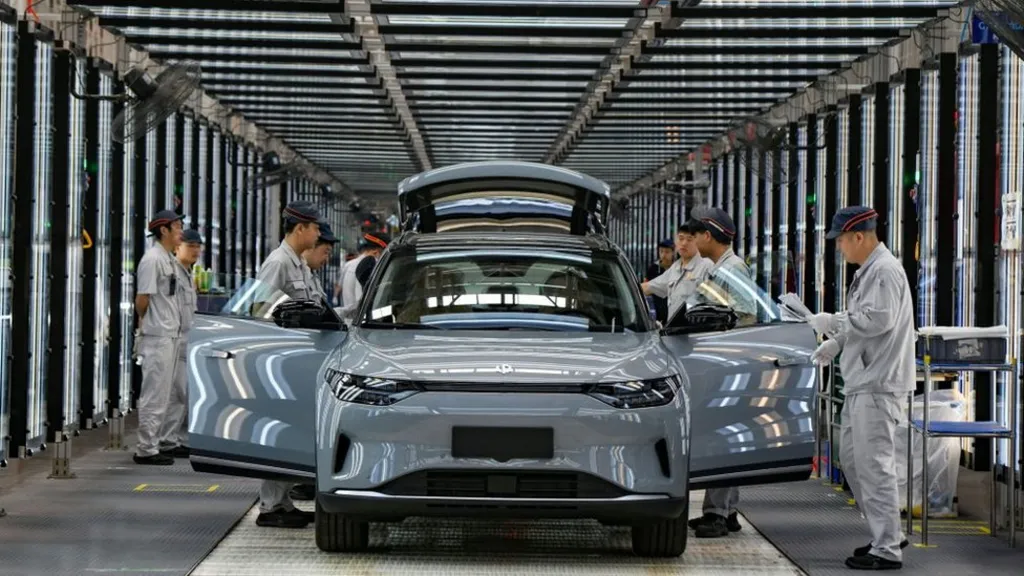
Biden hits Chinese electric cars and solar cells with higher tariffs
US President Joe Biden is ramping up tariffs on Chinese-made electric cars, solar panels, steel and other goods. The White House said the measures, which include a 100% border tax on electric cars from China, were a response to unfair policies and intended to protect US jobs. China said it was opposed to the hikes and would take retaliatory measures. Analysts said the tariffs were largely symbolic and intended to shore up votes in a tough election year. They follow months of criticism by former President Donald Trump, who is running for the White House against Mr Biden and has argued his rival's support for electric cars would "kill" the US car industry.Mr Biden on Tuesday vowed that he would not let China "unfairly control the market" for electric vehicles and other key goods, including batteries, computer chips and basic medical supplies. "If the pandemic taught us anything - we need to have a secure supply of essentials here at home," he said. The tariffs announced on Tuesday will hit an estimated $18bn worth of imports, the White House said. As well as a rise from 25% to 100% on electric vehicle tariffs, levies on solar cells will increase from 25% to 50%. Tariff rates on certain steel and aluminium products will more than triple to 25%, up from 7.5% or less.In response, China's commerce ministry said the new moves would "severely affect the atmosphere for bilateral cooperation", and criticised what it characterised as the politicisation of economic issues. Ahead of the heavily-trailed White House announcement on Tuesday, a spokesperson for China's foreign ministry said it "will take all necessary measures to safeguard its legitimate rights and interests". US says falling trade with China could be positive How Chinese firms are using Mexico as a backdoor to the US The moves expand sweeping border taxes that the US imposed on Chinese goods under Mr Trump, citing unfair trade practices. During the Biden administration's review of the measures, the government received nearly 1,500 comments, the vast majority of them from business owners arguing that they were driving up prices for everyday Americans, and asking them to be removed.

